
The Next Generation of Finance
As technology, data and analytics transform industries like finance, CBS is keeping pace by offering a curriculum that addresses the resulting changes.

Finance is at the core of making informed business decisions. Columbia GSB’s finance division provides a complete finance training with a carefully integrated core curriculum and over 100 elective courses to train students to manage their own finances as well as for career success in asset management, investment banking, real estate, financial technology firms, management consulting, and for roles in central banks and government. Our
Taught by award-winning faculty from all areas of finance, our professors bring a combination of research-based insights, theoretical frameworks, and practice-based understanding to the classroom. The curriculum focuses on merging the theory and practice of finance along three dimensions: understanding finance principles, an ability to use state-of-the-art data-analytical tools, and a deep knowledge of financial markets and institutions.

As technology, data and analytics transform industries like finance, CBS is keeping pace by offering a curriculum that addresses the resulting changes.
The Nobel Prize-winning economist visited CBS for the first installment of a new speaker series from The Hub, a new think tank, to discuss the future of capitalism with CBS Dean Emeritus Glenn Hubbard.
We present an equilibrium production economy in which default occurs in equilibrium. The borrower chooses optimal default and consumption policies, taking into account that default is costly and the lender gains access to the technology upon default. We derive asset prices and default premia in this economy. The borrower's relative risk aversion in wealth increases with decreases in wealth due to the increased possibility of default at low wealth levels. This produces a time-varying pricing kernel and a countercyclical equity premium.
Monte Carlo Methods are among the most broadly applicable and thus most powerful tools for valuing derivatives securities and measuring their risks. As computer speeds continue to increase and new research expands the scope and efficiency of these methods, their use is destined to grow. This book is devoted to the use of Monte Carlo methods in finance. Advances in Monte Carlo methods in financial engineering take place at the interface between academic research and industry practice. This book targets that interface developing theory closely tied to applications.
This study reports on the ex-post performance of survivor REITs and RECs over a 14.5-year period covering several business cycles. The results show that the systematic risk and risk-adjusted returns of REITs and RECs are quite different, especially during periods of low growth in real GNP. Relative to the overall stock market, survivor REITs, in particular, equity REITs, exhibited less volatility and higher returns than previous studies revealed.
Organizations private rms, government agencies, and non-pro t organizations can be modeled as networks of agents who are working together toward a common set of goals. Arrow (1974) views organizations as ways to overcome the limits of individual agents. By bringing together multiple workers, organizations can perform tasks that are outside the reach of any individual. While this creates production opportunities it also poses a challenge. In order to be productive, workers must coordinate their actions.
The Covid-19 pandemic has accelerated the trend of many colleges moving to testoptional, and in some cases test-blind, admissions policies. A frequent claim is that by not seeing standardized test scores, a college is able to admit a student body that it prefers, such as one with more diversity. But how can observing less information allow a college to improve its decisions? We argue that test-optional policies may be driven by social pressure on colleges’ admission decisions.
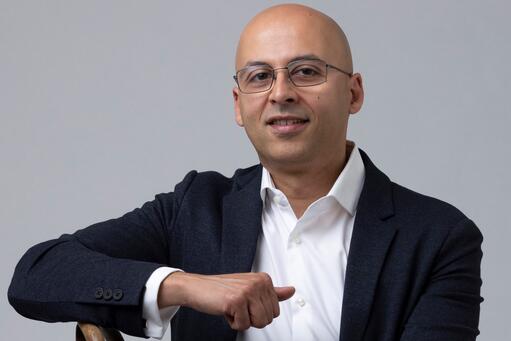
Omid Malekan is the the author of several books, including Re-Architecting Trust: the Curse of History and the Crypto Cure for Money, Markets and Platforms as well as The Story of the Blockchain: A Beginner’s Guide to the Technology That Nobody Understands. An eight-year veteran of the crypto industry, his writing on this and related topics has appeared in the New York Times, Wall Street Journal, Financial Times, Spectator Magazine, and his own blog on Medium.
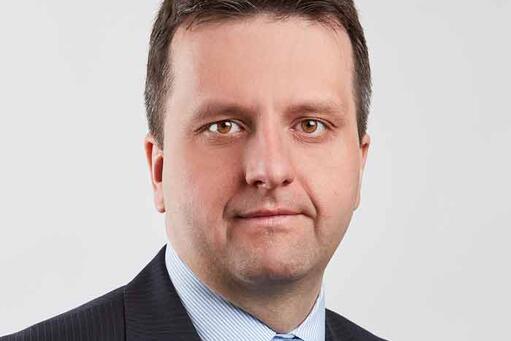
Tomasz Piskorski is the Edward S. Gordon Professor of Real Estate in the Finance Division at Columbia Business School. He is also a Research Associate at the National Bureau of Economic Research and serves on the Academic Research Council of the Housing Finance Policy Center at the Urban Institute. Professor Piskorski earned a M.S. in Mathematics from New York University Courant Institute of Mathematical Sciences and a Ph.D. in Economics from New York University Stern School of Business.

Tomasz Piskorski is the Edward S. Gordon Professor of Real Estate in the Finance Division at Columbia Business School. He is also a Research Associate at the National Bureau of Economic Research and serves on the Academic Research Council of the Housing Finance Policy Center at the Urban Institute. Professor Piskorski earned a M.S. in Mathematics from New York University Courant Institute of Mathematical Sciences and a Ph.D. in Economics from New York University Stern School of Business.

Professor Parinitha (Pari) Sastry is an assistant professor of finance at Columbia Business School. Her research focuses on climate change, financial intermediation, and real-estate markets. She received her B.A. from Columbia University and her finance Ph.D. from the Massachusetts Institute of Technology. She has worked previously at the Department of Treasury, Task Force on Climate-Related Financial Disclosures, Brookings Institution, and New York Fed.


Kent Daniel is the Jean-Marie Eveillard/First Eagle Investment Management Professor of Business in the Finance Division at the Graduate School of Business at Columbia University. From 1996 to 2006, Kent was at the Kellogg School of Management at Northwestern University, where he was the John and Helen Kellogg Distinguished Professor of Finance (on leave from 2004-2006). Previously, he served on the faculties of the University of Chicago and the University of British Columbia.

Omid Malekan is the the author of several books, including Re-Architecting Trust: the Curse of History and the Crypto Cure for Money, Markets and Platforms as well as The Story of the Blockchain: A Beginner’s Guide to the Technology That Nobody Understands. An eight-year veteran of the crypto industry, his writing on this and related topics has appeared in the New York Times, Wall Street Journal, Financial Times, Spectator Magazine, and his own blog on Medium.
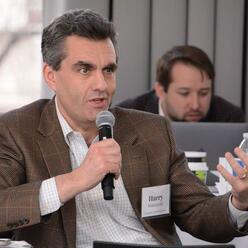
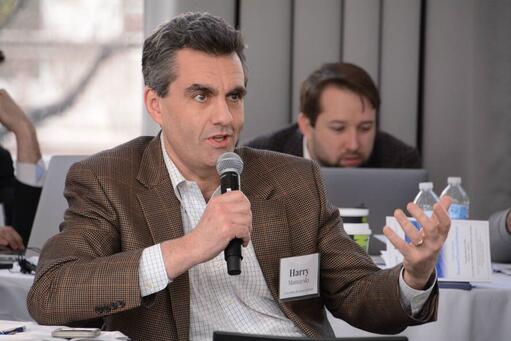
Harry Mamaysky is a Professor of Professional Practice at Columbia Business School, where he serves as the Director of the Program for Financial Studies. He is also on the Steering Committee of the Columbia-IBM Center for Blockchain and Technology. Harry teaches capital markets and asset pricing to MBA, Masters and PhD students, as well as Executive Education courses on the use of text data in finance, and on corporate bonds. He has consulted for a quantitative investment firm and for a nationally recognized statistical rating organization.
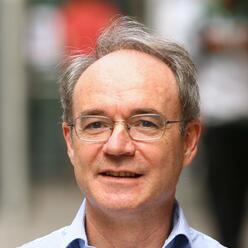
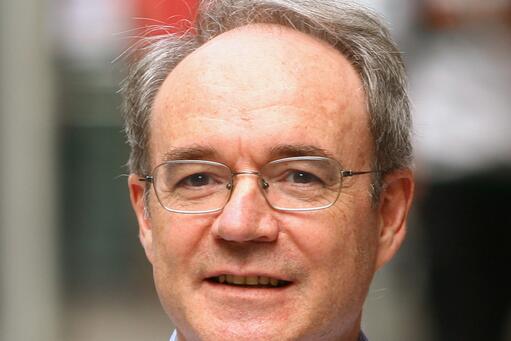
Patrick Bolton is the David Zalaznick Professor of Business. He joined Columbia Business School in July 2005. He received his PhD from the London School of Economics in 1986 and holds a BA in economics from the University of Cambridge and a BA in political science from the Institut d'Etudes Politiques de Paris. He began his career as an assistant professor at the University of California at Berkeley and then moved to Harvard University, joining their economics department from 1987-1989. He was Chargé de Recherche at the C.N.R.S.

Bob Herz’s current activities include serving on the boards of directors and various board committees of Fannie Mae ( Chairman of Audit Committee), Morgan Stanley (Chairman of Audit Committee), Workiva Inc., Paxos, and the Sustainability Accounting Standards Board Foundation, on the Independent Investment Committee of UNOPS, on several advisory boards, as an Ambassador for the International Integrated Reporting Council, and as a member of the Audit Committee Chair Advisory Council of the National Association of Corporate Directors. He is also an executive in residence at Columbia Busi

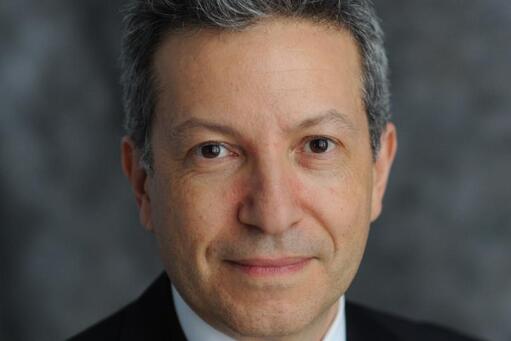
David E. Weinstein is the Carl S. Shoup Professor of the Japanese Economy at Columbia University. He is also the director of the Center on Japanese Economy and Business (CJEB), co-director of Columbia’s APEC Study Center, co-director of the Japan Project at the National Bureau of Economic Research (NBER), and a member of the Center for Economic Policy Research and the Federal Economic Statistics Advisory Committee.
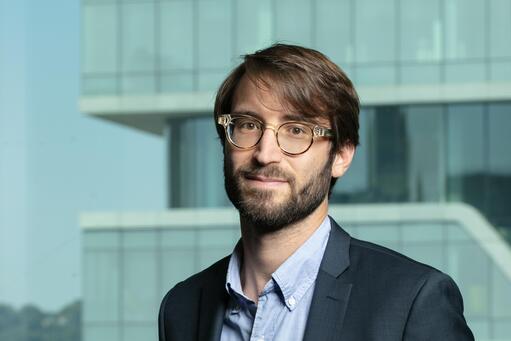
Professor Olivier Darmouni is a financial economist whose research interests span corporate finance, banking and industrial organization. He applies a variety of empirical methods to understand how frictions, in particular asymmetric information, affect credit markets. Prior to joining Columbia, Olivier graduated from a PhD in Economics from Princeton University.

Professor Picoult teaches the Risk Management course, which is currently offered in a joint Master of Science degree program of the DRO department of the Business School and the IEOR department of the School of Engineering and Science. In 2018 Picoult retired as managing director of Citi, where he had worked for 38 years. He had been the head of Citi’s Economic Capital and Stress Testing Methodology unit and served on a number of firm-wide risk governance committees.
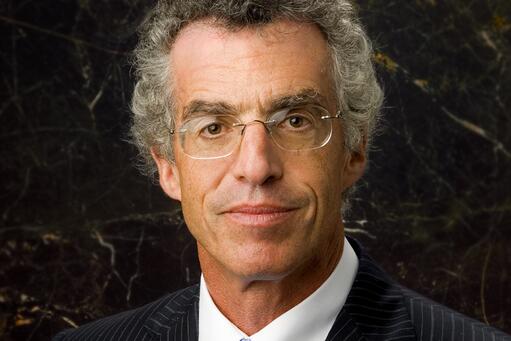
Frederic S. Mishkin is the Alfred Lerner Professor of Banking and Financial Institutions at the Graduate School of Business, Columbia University. He is also a Research Associate at the National Bureau of Economic Research, and from September 2006 to August 2008 was a member (governor) of the Board of Governors of the Federal Reserve System. He has also been a Senior Fellow at the FDIC Center for Banking Research, and past President of the Eastern Economic Association. Since receiving his Ph.D.

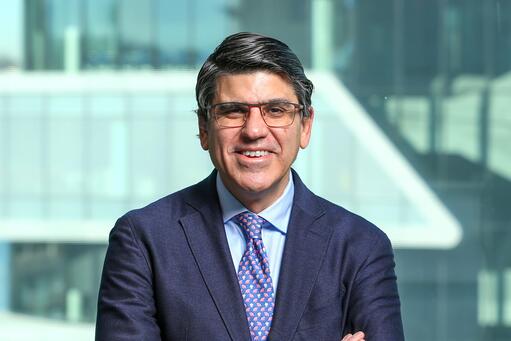
Professor Tano Santos is the Robert Heilbrunn Professor of Asset Management and Finance and the Academic Director of the Heilbrunn Center for Graham & Dodd Investing at Columbia Business School, Columbia University, where he has taught since 2003. Previously he was an Associate Professor at the University of Chicago Booth School of Business. At Columbia, he teaches courses on Value Investing, Modern Value, and Modern Political Economy.


Michael Ewens is the David L. and Elsie M. Dodd Professor of Finance and co-director of the Private Equity Program. He is also a Research Associate at the National Bureau of Economic Research (NBER), Associate Editor of the Journal of Financial Economics, Associate Editor at the Review of Financial Studies, Assoicate Editor at Management Science, Associate Editor at the Journal of Corporate Finance, and co-editor of the Journal of Economics & Management Strategy. He received a Ph.D.

Professor Nissim earned his PhD in Accounting at the University of California, Berkeley, and joined Columbia Business School in 1997. He was granted tenure in 2005, and full professorship in 2007. He served as the Chair of the Accounting Division during the years 2006–2009 and 2014–2016.

Professor Parinitha (Pari) Sastry is an assistant professor of finance at Columbia Business School. Her research focuses on climate change, financial intermediation, and real-estate markets. She received her B.A. from Columbia University and her finance Ph.D. from the Massachusetts Institute of Technology. She has worked previously at the Department of Treasury, Task Force on Climate-Related Financial Disclosures, Brookings Institution, and New York Fed.

Professor Jian Li joined Columbia Business School in 2021. She graduated with a PhD from the Joint Program of Financial Economics at the University of Chicago. Her research interest lies at the intersection of macroeconomics and finance. She is particularly interested in how financial intermediaries affect the real economy and how different types of financial institutions can contribute to financial instability.
Tano Santos, the Robert Heilbrunn Professor of Asset Management and Finance and Director of Columbia Business School’s Heilbrunn Center for Graham and Dodd Investing, discusses the school’s approach to value investing and finance.
This paper studies systemic risk in the interbank market. We first establish that in the German interbank lending market, a few large banks intermediate funding flows between many smaller periphery banks. We then develop a network model in which banks trade off the costs and benefits of link formation to explain these patterns. The model is structurally estimated using banks' preferences as revealed by the observed network structure before the 2008 financial crisis.
We demonstrate a novel link between relationship-specific investments and risk in a setting where division managers operate under moral hazard and collaborate on joint projects. Specific investments increase efficiency at the margin. This expands the scale of operations and thereby adds to the compensation risk borne by the managers. Accounting for this investment/risk link overturns key findings from prior incomplete contracting studies.
Bank bond portfolios remained deeply underwater in the fourth quarter of 2022, reducing banks' access to liquidity in the first quarter when deposits became far more precious.

Todd Baker is a financial services executive whose career has led him from corporate law to C-suite strategic business leadership roles at several of the largest domestic and international banks and roles as an academic, consultant, writer, speaker and commentator on banking, financial technology, consumer financial access and regulation issues.

Brett House is Professor of Professional Practice in the Economics Division at Columbia Business School. His research and writing are focused on macroeconomics and international finance, with interests in fiscal issues, monetary policy, international trade, financial crises, and debt markets. His work has been published in peer-reviewed journals and international media.

Yiming Ma is an Associate Professor in the Finance Division at Columbia Business School. She received her Ph.D. in Finance from the Stanford Graduate School of Business in 2018 and a B.A. in Economics & Mathematical and Global Affairs from Yale University in 2013.
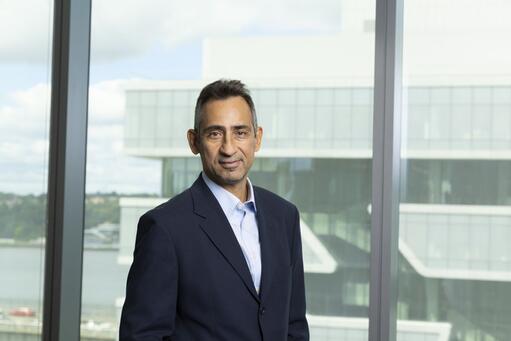
Achilles Venetoulias has 30 years’ experience in taking and managing risk, and in creating and running businesses. He has founded and run two hedge funds, taken proprietary risk for large institutions, supervised the investment process for a European fund of hedge funds, and served on the Board of a fund of hedge funds for an international wealth management firm. He has also founded a fintech company that


Professor Tetlock's research interests include behavioral finance, asset pricing, and prediction markets. One area of his research examines how firms' stock market prices respond to the content of news stories. His 2007 Journal of Finance study on the impact of negative words, such as "flaw" and "ruin," won the Smith-Breeden Prize for the best article in asset pricing. His research has been featured in popular press outlets such as Business Week, The Economist, The New York Times, and The Wall Street Journal.

Professor Jian Li joined Columbia Business School in 2021. She graduated with a PhD from the Joint Program of Financial Economics at the University of Chicago. Her research interest lies at the intersection of macroeconomics and finance. She is particularly interested in how financial intermediaries affect the real economy and how different types of financial institutions can contribute to financial instability.

Matthew Dell Orfano is a Senior member at Discovery Capital, focusing globally on multiple sectors, thematic trade construction, and special situations, in addition to managing their data efforts. He is responsible for individual positions and the internal thematically driven portfolio, which assimilates bottoms-up analysis and macro thematic from over 55 countries into actionable insights.


Professor Bruce C. N. Greenwald is the Robert Heilbrunn Professor Emeritus of Finance and Asset Management at Columbia Business School and the academic Director of the Heilbrunn Center for Graham & Dodd Investing. Described by the New York Times as "a guru to Wall Street's gurus," Greenwald is an authority on value investing with additional expertise in productivity and the economics of information.

David has over 15 years of experience investing in distressed, special situations and all-weather credit strategies, including as a Partner and Portfolio Manager of Standard General, LP. and Sunago Capital Partners LP. He also serves as Executive Chairman of Turning Point Brands, Inc. (NYSE: TPB), a Director of National Cinemedia, Inc.

Professor Johannes’s research analyzes the empirical content of fixed-income and derivative securities pricing models. He is particularly interested in developing econometric methods to investigate models with jumps and stochastic volatility. Johannes teaches the elective Capital Markets and Investments.
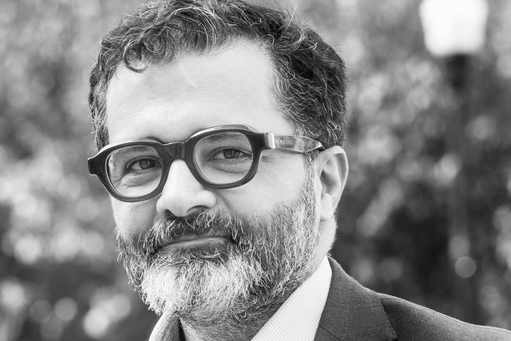
Ciamac C. Moallemi is the William Von Mueffling Professor of Business in the Decision, Risk, and Operations Division of the Graduate School of Business at Columbia University, where he has been since 2007. He also develops quantitative trading strategies at Bourbaki LLC, a quantitative investment advisor. A high school dropout, he received S.B. degrees in Electrical Engineering & Computer Science and in Mathematics from the Massachusetts Institute of Technology (1996).
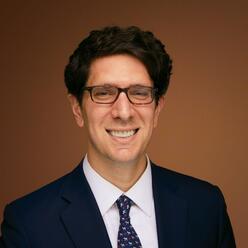
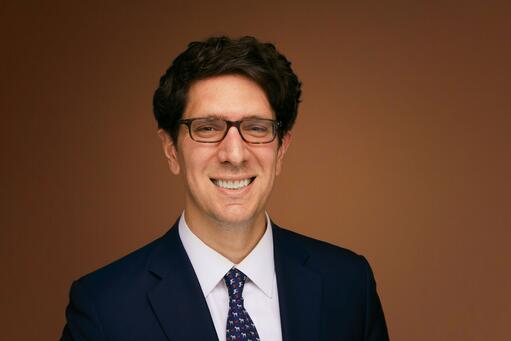
Pierre Yared is the MUTB Professor of International Business, Senior Vice Dean for Faculty Affairs, and Vice Dean for Executive Education at Columbia Business School. His research, which has been published in leading academic journals, focuses on macroeconomic policy and political economy. He is a research associate of the National Bureau of Economic Research and an associate editor of the American Economic Review. Yared teaches Global Economic Environment, a Core MBA course in macroeconomics for which he received the Dean’s Award for Teaching Excellence.